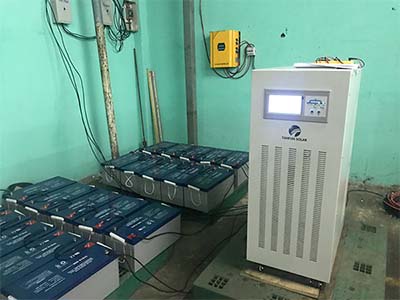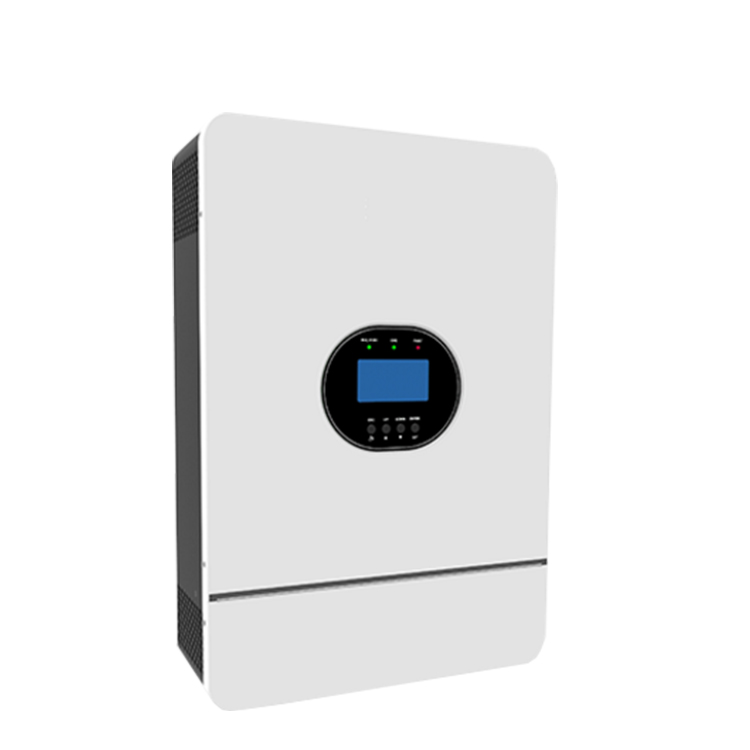 TANFON SOLAR
TANFON SOLAR
 September 14,2023
September 14,2023
As more households become aware of the financial advantages offered by solar energy systems, their adoption has increased recently. Solar energy offers major financial benefits in addition to reducing dependency on conventional energy sources. We will examine the different financial advantages of installing a residential solar system in this article.
Lower Energy Costs
The decrease in energy costs is one of the home solar system's most noticeable and practical financial advantages. Sunlight is converted into electricity by solar panels, which can be used to run lights and appliances in your home. Your reliance on the grid can be greatly reduced by producing your own electricity, which will cut your monthly energy costs. Homeowners occasionally even produce excess electricity, which can further lower their expenses by being sold back to the power company through net metering.
ROI (return on investment)
Over time, an investment in a residential solar system can generate significant profits. Although buying and installing solar panels can be expensive up front, the savings over time frequently outweigh the expense. The return on investment (ROI) for solar panels is frequently extremely competitive with other investments, and homeowners can frequently see a return of 10% or more yearly. This can result in large savings over the solar panels' lifespan (typically 25–30 years) and a big boost in your home's total worth.
Savings On The Environment
The environmental advantages of solar energy may not immediately convert into financial rewards, but over time they may. Solar energy is a clean, renewable energy source that lessens environmental pollutants and greenhouse gas emissions. Future financial incentives or rules that reward environmentally responsible actions may be implemented when governments and societies prioritise environmental sustainability. By switching to solar power today, you put yourself in a position to take advantage of these prospective advantages in the future and help the environment.
State And Federal Incentives
Governments at both the federal and state levels provide homes who install solar panels with a variety of incentives and tax credits in an effort to promote the use of solar energy. These financial aid programmes can drastically lower the price of buying and setting up solar power systems. State-level incentives and rebates further add to the financial advantages of adopting solar, while the federal Investment Tax Credit (ITC) offers a tax credit of up to 26% of the total system cost. These incentives not only lower your initial outlay but also shorten the time it takes for your investment to pay off.
Decreased Costs For Maintenance
Solar panels are renowned for their longevity and little maintenance needs. Once they are set up, they normally only need the occasional cleaning to get rid of dust and dirt. Solar panels provide long-term savings by lowering maintenance expenses during the life of the system, unlike other house additions that could need continuous maintenance. The overall economical advantages of solar energy are enhanced by this.
Using Net Metres
A net metering programme is available in many areas, allowing solar-paneled homeowners to receive credits for any extra electricity they produce and transfer back into the grid. The excess power generated by your solar system on bright days that exceeds what your home needs is fed back into the grid. You get credits on your energy bill in exchange, which you may use during times when your system produces less electricity, including at night or on cloudy days. With net metering, your solar panels essentially become a little power plant that makes money from energy credits.
Increased Value Of Homes
When compared to properties without one, a solar energy system-equipped home often has a better market value. Homes with solar panels are drawing more and more interest from prospective purchasers who are aware of the long-term financial benefits of lower energy costs. According to studies, houses with solar panels can sell more quickly and for more money than their non-solar equivalents. Therefore, adding a solar system can result in significant gains if you decide to sell your home in addition to saving you money while you still own it.
Protection From Escalating Energy Prices
Protection against rising energy prices is one of the less obvious financial advantages of installing a home solar system. The cost of conventional energy tends to rise over time for a variety of reasons, including inflation, supply and demand, and geopolitical events. You protect yourself from these price increases by using solar panels to generate your electricity. Your savings from solar energy grow in importance as energy prices rise, boosting the financial advantages of your solar investment.
Independence From Energy
You can become somewhat energy independent by using a home solar system to generate your electricity. This implies that you are less dependent on outside energy sources, such as nuclear power or fossil fuels, which might be subject to supply shortages or price swings. When the grid experiences an energy crisis or emergency, energy independence might be especially helpful.
Conclusion
In conclusion, a residential solar system has numerous, substantial financial advantages. The financial argument for installing solar panels for homes is strong due to the decreased energy bills, good ROI, government subsidies, and enhanced home value. As energy prices keep rising and environmental
FAQ
1. Are solar panels for home worth the investment?
Installing solar panels should be your next move if monthly electricity costs are one of your top worries. A recent study found that installing solar panels on your roof can cut your monthly electricity costs by 80–90%. Additionally, an A5kW system can produce 600 units and save you Rs. 4,200 per month.
2. Is home solar profitable?
Today rooftop solar installation in the world is a wise financial decision. Installing solar systems is becoming less expensive, and the government is offering a number of incentives to do so.
3. Which solar is good for home?
The most prevalent type of solar panel is monocrystalline. Despite being the most expensive choice, they provide the finest long-term advantages. They possess the greatest.
4. What is the main advantage of solar?
After installation, solar energy produces no greenhouse emissions and is pollution-free. decreased reliance on fossil fuels and foreign oil. Every day of the year, renewable, clean energy is available; even gloomy days result in some production.
5. Are solar panels waterproof?
Your solar energy system will not be impacted by rain in and of itself. Due to their waterproof nature, solar panels are unaffected by rain. In fact, rain is advantageous since it will wash away some of the dirt and debris that over time builds up on the panels.












